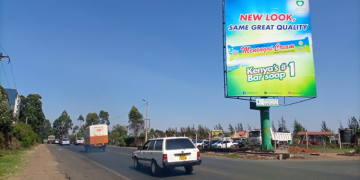The Court of Appeal in Nairobi has cancelled the murder conviction and 25-year prison sentence of Daniel Mwangi Chege, ruling that the case against him, which was based only on circumstantial evidence, did not meet the legal standard of proof.
The judgment, delivered in Criminal Appeal No. 136 of 2023, also found that the trial had serious procedural errors and that some of the evidence used was inadmissible because it constituted hearsay, i.e., information provided by someone who was not a direct witness.
Background of the Case
Daniel Mwangi, a machine operator, had been accused of killing his supervisor, Lawrence Oluoch Ogoro, sometime between August 6 and August 14, 2014, in Allangho Arba, Garissa County.
Both men, along with another worker named Mwenda, were employed at Bora Mineral Products, a mining company situated approximately 40 kilometers from Garissa.
Before the disappearance, a dispute arose over 400 litres of diesel that went missing after an excavator broke down.
The deceased (Ogoro) and the appellant (Chege) were both suspected of being responsible.
There were also reports that Chege had disagreements with Ogoro and had accused him of witchcraft.
The High Court had convicted Chege based mainly on circumstantial evidence, finding that he was the last person seen with the deceased and had not given a good explanation for what happened after.
Investigators later found marks of an excavator leading to a heap of soil where human remains and torn clothes were discovered.
The trial court concluded that Chege and Mwenda had killed Ogoro and buried him in a shallow grave using the excavator, leading to Chege being sentenced to 25 years in prison.
Major Trial Errors in Daniel Mwangi’s Case
During the appeal hearing, Assistant Director of Public Prosecution Mr. Jami admitted that the case had weaknesses and procedural errors.
The Court of Appeal found that the trial had violated Sections 200(3) and 201(2) of the Criminal Procedure Code (CPC).
The case had been heard by three different judges: Dullu, Kariuki, and Aroni. However, the two succeeding judges failed to inform Chege of his legal right to request that witnesses be recalled and reheard, as required by Section 200(3).
The appellate judges explained that this rule protects the accused’s right to a fair trial under Article 50(2) of the Constitution.
Also Read: ODM Breaks Silence on Raila Odinga’s Health
Because the final judge, Aroni, did not hear the key witnesses directly, the court found that Chege had been unfairly prejudiced.
Weakness in the “Last Seen With” Evidence
The Court also closely examined the circumstantial evidence that was used to convict Chege.
It found that the claim that he was the last person seen with the deceased came from Prosecution Witness 1 (PW1), who had heard it from Mwenda, a person who never testified in court.
The judges ruled that this was hearsay and could not be used as reliable evidence.
Also Read: Litein Boys Announce Dates for Student Readmission Ahead of End Year Exams
Additionally, the Court noted several facts that weakened the prosecution’s case:
- Chege’s own statement said he and the deceased parted safely on the main road at Ogoro’s request.
- The area was semi-arid and known for wild animals, and hyena droppings were found near the remains, raising the possibility that the deceased might have been killed or mauled by wildlife.
- Mwenda’s suspicious behaviour — lying to the deceased’s wife that Ogoro had quit his job and then disappearing, further casts doubt on Chege’s guilt.
Final Ruling
The Court of Appeal concluded that even if the trial had been properly conducted, the evidence was too weak to support a conviction.
It found the verdict unsafe and therefore allowed the appeal, cancelled both the conviction and sentence, and ordered that Daniel Mwangi Chege be released immediately.
Follow our WhatsApp Channel and X Account for real-time news updates.












































































